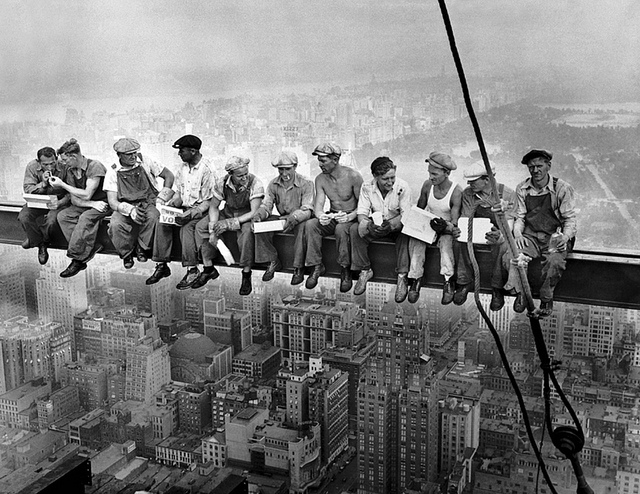Editor’s note: elephant journal articles represent the personal opinion, view or experience of the authors. As an independent media outlet, we cannot verify the validity of any claims made on this website.
We seem to live in a world that loves selective history more than anything.
Unfortunately though, history has never been black and white. Rather, significant points in time are perceived differently among different cultures.
Socialism is no exception to this rule. Despite its totalitarian counterpart—communism—and accused by many people of being an ineffective system, socialism was responsible for a great deal of benefits we enjoy today. The 40-hour workweek, for example, was a socialist creation, as well as bringing women into the workforce.
On the 1st of May, most countries celebrated the International Workers’ Day. Are you entirely aware of its history, though? Here are some important things you may not know.
You may associate socialism with its mediatized traits—lack of freedom, an economic system built to fail, abuse against citizens – but underneath this, the movement originally had good intentions. Such as to fight repressions against the working class. And to change the way we work by regulating the injustices workers faced.
This is where the International Workers’ Day draws its roots from. It started with a peaceful rally on the 4th of May 1886 supporting the eight-hour workday. Sadly, the event ended with the death of seven policemen and more than four civilians when an unknown person threw a dynamite. The day remained in history as the Haymarket Affair.
The first International Workers’ Day was set as recognition of the aforementioned rally and the struggle workers went through as they fought for their rights.
International, But Not So Internationally National.
As the name suggests, International Workers’ Day is thought to be a holiday celebrated throughout the world, but the truth is slightly different.
Most countries in and around Europe celebrate International Workers’ Day on the 1st of May and most of them have declared it a national holiday too.
Labor Day is also celebrated outside of the Old Continent as well. However, the date at which it is celebrated differs from one country to another. For example, in the U.S. and Canada, it’s a national holiday celebrated in September. Although the U.S. has made an effort to switch Labor Day to the 1st of May, they have failed—mostly because the day is largely connected to socialist, leftist and communist groups.
All in all though, regardless of political approach, workers are celebrated in most countries—with a few exceptions…
Latecomers to the Party.
Until 2014, Indonesia was one of these. Indonesian started to celebrate International Workers’ Day in 1920, but the holiday was banned during the New Order lead by President Suharto when it was found to be too closely linked to communism. Not only did he ban Workers’ Day, but he also forbade rallies and all other labor-related manifestations.
In 1998, mass protests forced Suharto to resign, which jump-started an entirely new era in the Indonesian workers’ movement. Rallies that supported the labor movements grew larger and larger until, in 2013, no less than 135,000 people gathered to protest in Jakarta and the 1st of May was finally declared an official holiday. The following year, Labor Day became a free day for all, but rallies are expected to continue until their demands are met.
Indonesia is not the only place where Workers’ Day was not celebrated. In Israel, for example, Labor Day is not recognized as a national holiday. It is, however, officially recognized by Avodah (Israel’s Service Corps) and by Histadrut (Israel’s organization of trade unions.)
Also, in Japan, the Workers’ Day is not officially recognized as a national holiday, although most employers grant a day off for “Golden Week” anyway.
For most of the countries in the modern world, the International Workers’ Day is not as political as it used to be—and the vast majority of those who celebrate it do not necessarily associate it with communism or socialism.
In fact, for most of us, it is a day to celebrate with family and friends.
And while it’s observed according to different traditions and customs across the world, we’re all connected by common beliefs: we need to be respected as the backbone of the economy. We need to have our rights protected and we need to be fully acknowledged as an immense power in our countries’ economic and social systems—regardless of our political affiliations.
Author: Shirlene Pickard
Editor: Sara Kärpänen
Photo: daily sunny / flickr







Read 0 comments and reply